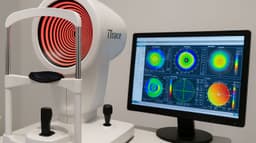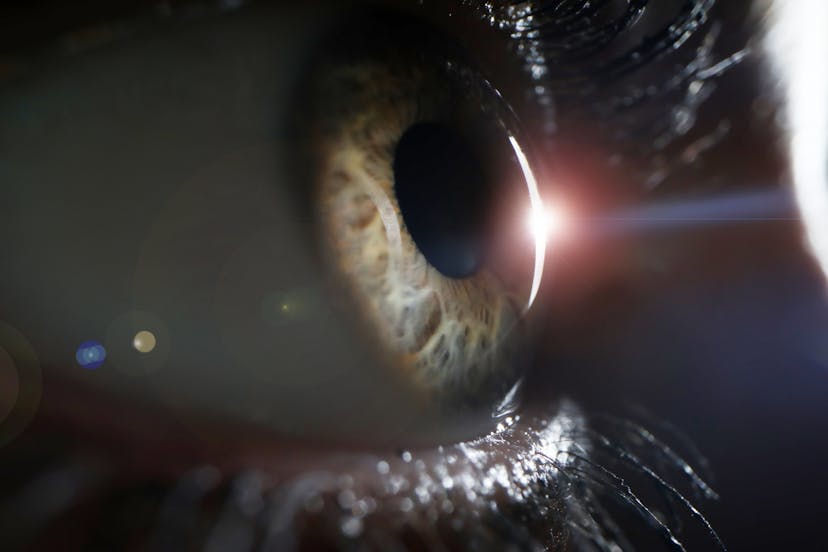
The Risk Of Hereditary Glaucoma And Diabetes
We recently had the opportunity to sit down and have a talk with Ms. Bola Odufuwa, one of the Consultant Ophthalmologists and Clinic Directors at My-iClinic about Glaucoma.
With more than 15 years of experience and the achievement of helping over 5,000 patients improve their vision, it was safe to say she knew what she was talking about.
Glaucoma is a progressive condition that causes damage to your optic nerves. Bola explained how it is linked to the pressure in the eye that has started to build up so much it starts to deteriorate your vision.
It comes in two main forms, open-angle glaucoma the most common type of glaucoma with no obvious abnormality in the eye and angle closure glaucoma, the less common form that requires immediate medical attention due to the abnormality.
Open-angle glaucoma appears as deterioration of the drainage canal (also known as the Trabecular Meshwork). We say deteriorating as the fluid (Humor) doesn’t flow out like it is supposed to causing the pressure in the eye to increase which subsequently causes damage to the optic nerve. This tends to develop slowly over time and is a lifelong condition that has to be controlled to prevent permanent damage such as sight loss.
According to Moorfields Eye Hospital, in England there are around 480,000 people who suffer from chronic open angle glaucoma.
Crazy Isn’t It?
So what about angle closure glaucoma?
This is the less common form of glaucoma. It is caused by blocked drainage canals due to the drain space between your iris and cornea becoming too narrow which results in a sudden rise of intraocular pressure.
This form of glaucoma develops a lot faster than open-angle glaucoma unlike the open-angle form, it presents symptoms such as:
- Severe eye pain
- Nausea and vomiting
- Headaches
- Blurred vision and/or seeing halos around lights
Any form of damage that has taken place is usually very noticeable and requires immediate medical attention.
So now we know what glaucoma is and the forms it can present itself in. But now the question is how do people get glaucoma?

It’s Hereditary
You are now probably thinking, am I at risk?
The answer is yes, if you have a family history of Glaucoma and/or you are of African descent, it is important that you monitor the condition of your eyes.
Although it may not show up when you are young, it tends to make an appearance as you get older.
Once you hit the age of 60, especially if you have a family history of the disease, it is crucial that you get a complete eye exam, including dilation from an eye doctor such as Bola Odufuwa, every 1 to 2 years.
For those of you that have diabetes…
You are at risk as well, even if you don’t have a family history of glaucoma.
A common complication of diabetes is diabetic eye disease, this refers to a collection of sight-threatening problems that people which may develop over time, glaucoma falls under this category.
If you are diabetic, you are more likely to develop open-angle glaucoma which is the most common form of the disease.
Since research has confirmed the link between diabetes and glaucoma, it is important that if you have diabetes, you get a dilated eye exam at least once a year to make sure that the disease doesn’t cause deterioration of your vision.
Can Glaucoma Be Cured?
No, it can’t, it can only be controlled.
The treatment of open-angle glaucoma is much better than it was 5 years ago as most patients are now treated with eye drops. Upon diagnosis, your doctor may prescribe eye drops to reduce the formation of fluid in the eye and increase its outflow to lower your pressure.
Other treatments such as laser and surgery are available for those who don’t find success with the drops. The aim of the surgery is to bypass the blockage in the eye to reduce the pressure in the eye. There is established evidence that eyes that have surgery soon after a glaucoma diagnosis, do better in the long term.
So think about it.
Moral Of The Story…
Most patients with glaucoma retain good vision indefinitely as modern treatments such as those performed at My-iClinic is easy and effective but it is crucial that you are looking after your eyes.
Talk to your family, most importantly your parents and grandparents and find out about your family medical history. If it turns out that there is a history of glaucoma in your family, go to the opticians and make sure to have regular visits to maintain your eyes’ health.
Simple steps like these can make a life changing difference.
Find out more by Speaking to our team









